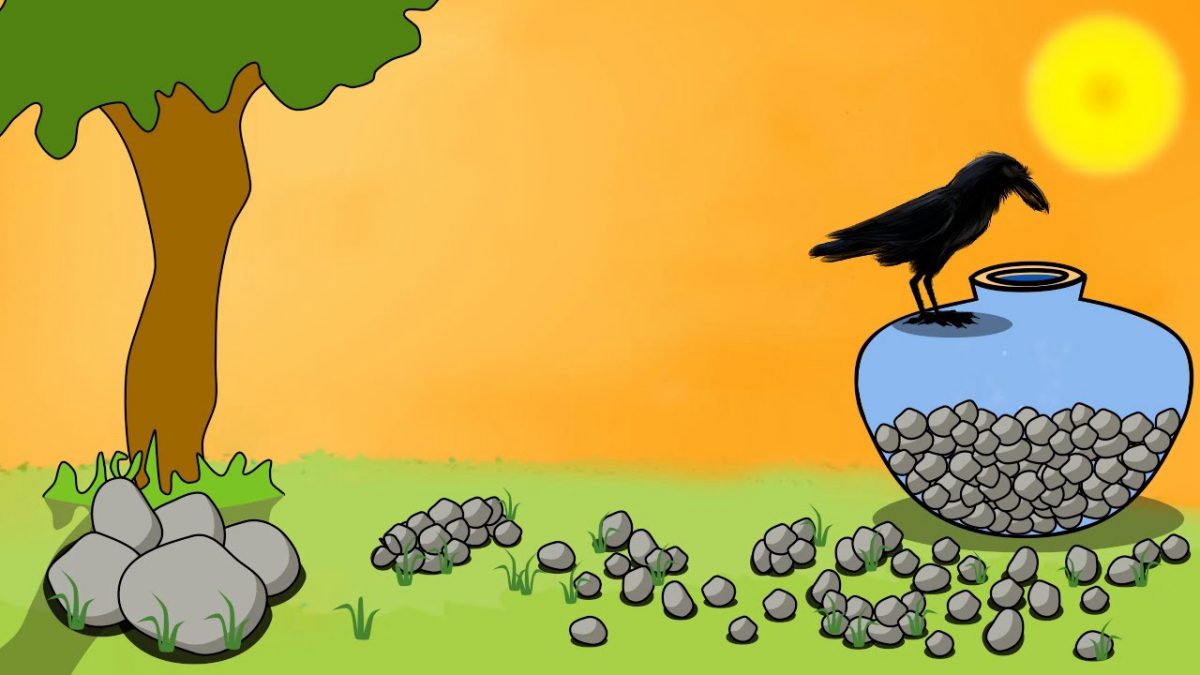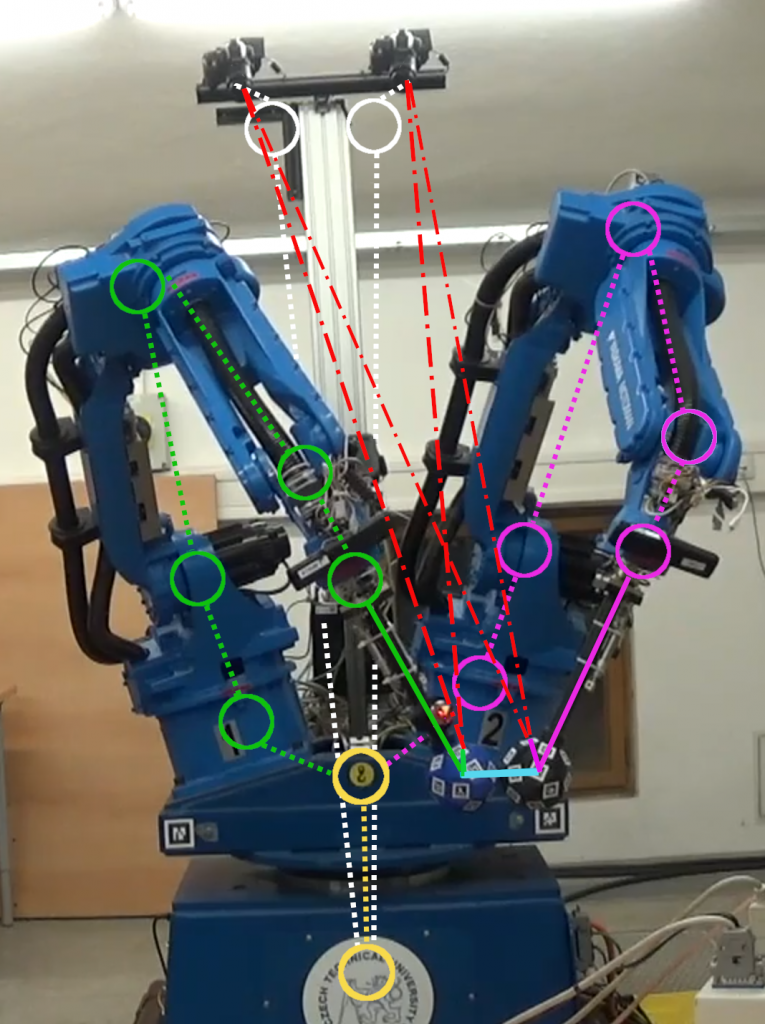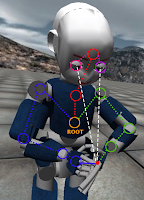This month I had the opportunity to join the 𝗥𝗼𝗯𝗼𝘁𝗶𝗰 𝗟𝗲𝗮𝗿𝗻𝗶𝗻𝗴 𝗚𝗿𝗼𝘂𝗽 at the University of Freiburg, led by Abhinav Valada (continuing the robotics tradition established by Wolfram Burgard). Building 80 became my home for one month of research and exchange.
It is difficult to express what makes going abroad so essential for research, but it simply is. It cannot be replaced by online meetings, lectures, or even conferences. Being immersed in a new environment changes how you think, opens new perspectives, and gives you capabilities you simply can’t unlock otherwise. For me, it feels like moving to the next level of a game—new rules, new features, new challanges and new possibilities.
I got to study many new things, discuss the same problems from fresh perspectives, and work intensively on one problem for a full month.
And what did I already gain from this stay?
• New insights and approaches to research problems
• The opportunity to focus deeply on one topic for a month
• Discussions with outstanding researchers (most of them part of the ELLIS PhD program)
• A view into how another group organizes its communication, labs, robots, meetings, computational resources, retreats, knowledge exchange, etc.
It wasn’t easy to organize mobility with a family, but it worked out: the university provided us with a reasonably priced flat, and my child even can spend a month in a German forest kindergarten 🌲. Plus, Freiburg is a really cool small city in Germany—perfect for outdoor activities. It is close to the French and Swiss borders, cyclist-friendly, and surrounded by hills. And there is a direct night train between Prague and Freiburg :).
💡 Think research mobility is a waste of time? Just try it—you’ll see how much you gain from it.
Grateful to #ROBOPROX, the University of Freiburg, prof. Valada and to Adrian Roefer, for making this experience possible.
Below are some of my more detailed insights from the mobility.
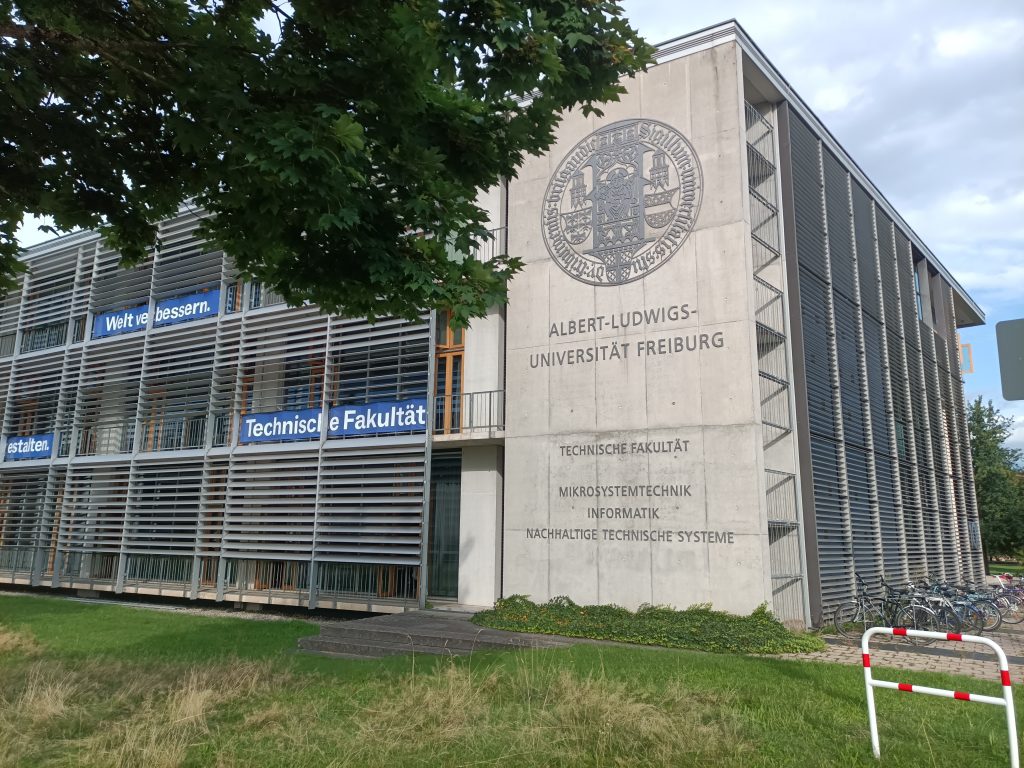
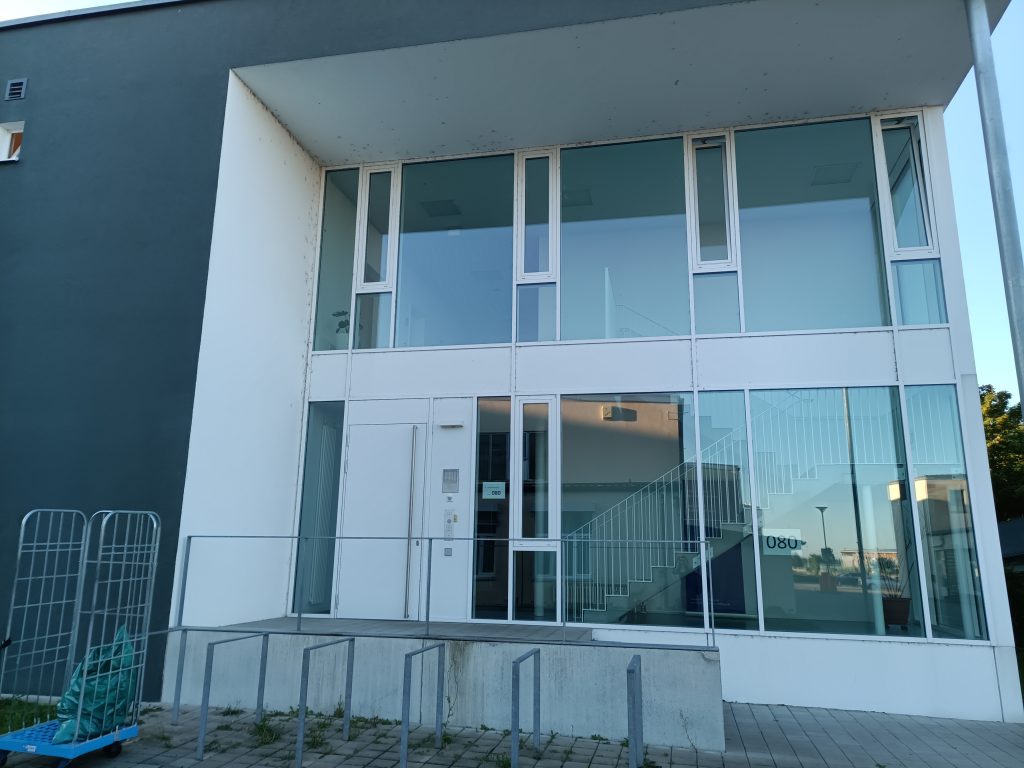
Highlights from Freiburg – Week 1
I’m really happy that I had the chance to spend eight hours a day back at the computer programming again. Most of my work here is with Adrian Röfer, who did his master’s with Michael Beetz.
On the very day I arrived, there was the PhD defense of Daniel Hollerkamp, the first finished PhD student of Prof. Abhinav Valada as a head of the RL group and of the Freiburg Robot Learning Group itself (news link). After 5.5 years, Daniel’s achievements were not bad: 6 RAL papers, 1 TRO paper, 1 patent, and multiple conference publications including some best paper awards (Google Scholar).
Robotics in Freiburg has long been associated with Wolfram Burgard (link) who is now in Norimberg. Amusingly, I almost got to use his very old bike during my stay.
The group also has a weekly team lunch on Thursdays, which was this week moved to the PhD defense celebration… I am happy that Michal is keeping pushing me to have the Thursday lunch together…let’s keep the tradition.
The Robot Learning Lab has an open repository policy—all of their repositories are openly shared within their GitLab to group members.
In terms of topics, the lab focuses mainly on two topics: autonomous driving (Prof. Valada’s original specialization) and robot manipulation. Like many other labs, they also have a demo apartment setup—a two-room flat with a kitchen and living area stocked with fruit and vegetables—where Frankas on Clearpath platforms move around, VR setup, and garage with mobile robots and a car full of sensors. They also have a PR2 robot (though only one arm works) and a KUKA iiwa, which unfortunately has currently some issues.
The University of Freiburg also provides apartments for visiting researchers, which is how I managed to find a reasonably priced place to stay for a month. I think this would be a fantastic idea to adopt at CTU too.
As for the city itself—Freiburg is a true paradise for cyclists. Everyone cycles here, and bikes are given as much space and respect as cars (or maybe more). There are even dedicated bike roads, and on shared ones, half the road is usually reserved for cyclists. And this is considered “quiet season” since the semester, schools, and kindergartens haven’t started yet. Even so, it already felt like way more cyclists than in Prague. I wish Prague could move more in this direction.
Highlights from Freiburg – week 2
Freiburg is a nice flat city surrounded by hills and forests. Perfect for cycling on city bike in the city and hiking in the hills around :). Ok and there is a nice place called university, where interesting research happens as well ;-).
Even in the place where there are very bright minds and great discussion and cooperation, people always feel that something could be better. As one of the PhD students said “The grass is always greener on the other side”. And that is why it is good to go abroad. To feel amazed by the things they do well and after a while to also see the places where they do not do that well.
However, I have to appreciate the drive of the students here. They were working on ICRA submissions last week (basically everyone worked towards a paper, only some didn’t submit). All of them discuss and know what they want to show and what does it mean to have ready to publish results. They know how to compare and which metrics to evaluate. And if they don’t achieve the good enough results, they don’t submit and submit a month later to RAL, you can feel the confidence they feel that they can do it, it is only when. I didn’t see any decline in their focus on the paper after some of them decided not to publish in ICRA and plan to do it only few week later to RAL with ready results.
What surprised me, is that they have basically no homeoffices. Maybe they can ask once a month for a day off, but otherwise, they are expected to be at work every day.
On Wednesday last week my phone started to beep and get read “National emergency alarm”. The test of sirens which we have in Czech republic every month here happens only once or twice a year and it is not only sirens, but all the mobile phones in the Germany. And they have a good reason for testing it as 3 years ago or so I heard there was an emergency but the whole system didn’t work at all…
Everyday is time to learn new things. I got into understanding stochastic clique matching for matching various objects across demos, and got to revisit and thinking my old symbol grounding problem. I spent a nice afternoon and evening thinking about mapping language and vision by probabilistic bipartite matching and probabilistic assignment to improve over methods that I tried during my PhD. Could I actually improve compared to CLIP by utilizing these graph methods? Well, many people obviously tried several of these things in annotating visual images accompanied by weak language annotations. But still I feel there is a space in the area. Let’s see if I get back to it, or it just stays on the backyard of ideas that have never been realized…
I like the rounded monitor I got borrowed :).
Highlights from Freiburg – week 3
After two weeks of digging through the code line by line, exploring its structure, and experimenting in iPython notebooks, it felt great to finally make my first commit — even if it was just a data structure for handling input/output. This week, I made more and more of my own commits and started contributing by adding new functionality. It feels good to actually produce some code, though I still feel insecure. I know I’m not a great software engineer and don’t understand many things, but that’s exactly why I’m here — to learn and be evaluated. Every day I get the chance to feel like an idiot, and I like it. If it’s not too much, it moves you forward.
I had to laugh when Adrian said he’s having a “publication crisis” — despite already having four first-author papers and around 13–15 total as he nears the end of his PhD. When I said that doesn’t sound bad, he replied: “Well, we always evaluate ourselves based on those we have around us. And one thing Abhinav is really good at is selecting people. I always feel I get to work with excellent people.” I couldn’t agree more. A researcher should always feel a bit “not good enough” — it means you’re surrounded by those who challenge you and push you forward.
After the weekend, the temperature dropped by almost 20 degrees, with rainy autumn days replacing the heat. My 45-minute walks to university are now wet, shoes squelching “quatch quatch,” but I couldn’t survive 10+ hours at a desk without them.
The managerial responsibilities from Prague, although reduced (thx everyone for that!), didn’t vanish: organizing ICDL, project proposals and meetings, teaching prep, and students. But with Jan’s support here, I learned to manage it by getting up at 5 AM, walking to the office, and spending the early hours on Prague tasks before everyone arrives (also nice for privacy, since I share an office with four others — a real challenge for me). From 9 AM I focus on the project I came here to do. The cost: by 2 PM, my brain is often drained. The first weeks’ motivation carried me, but afternoons are tougher now. At least going to bed early with Robert gives me enough sleep.
I’m still not used to sitting and thinking so long in a row. Strange thoughts creep in: that I’ve become a “mind machine,” my body irrelevant in this setup. But our minds evolved to support our bodies, embodied by nature. Will we really reduce ourselves to minds (so easily replaced by artificial ones), or keep our bodies central? My walks and weekends feel like resistance against that pull. Over lunch, when we compared Czech and German focus on beer, someone joked: “Alcohol is so popular here because it’s the only fun left — Germans just work, go home, save money… but it’s changing slowly.” It actually fit nicely with my recent listening to Lex Fridman’s podcast with Norman Ohler on drug use in the German army during WWII (from pervitin in pharmacies to meth enabling blitzkrieg marches, and much more).
The lab itself has a nice culture. Most communication goes through Slack, group meetings happen every two weeks. They also have weekly lunches together, time to time retreats, and occasional pub outings (mostly organized by PhDs and postdocs themselves). You can see as the lab is new (5 years), they try to find their way. There’s even a new “fun coordinator” and mini-golf in the hall. PhD students teach for four semesters and take ownership of projects early on. Professor steps back after proposals, having weekly discussions with each student. He focuses more on new students (on their first papers and projects) and later gives PhDs more and more independence and less support with the usefulness of weekly meetings depending on their topic.
By the end of last week, the building was nearly empty — most people had left for CoRL in Korea, some continuing directly to IROS in China or taking vacations. By the time they return, I’ll already be gone.
I can only recommend going abroad. It brings more than you expect — especially if you leave as many things as possible behind.
Highlights from Freiburg – week 4
This was my last week in Freiburg. My stay is slowly coming to the end. Makes me feel a bit sad. On Friday, I went out for a beer with Adrian — we talked about life and research, about what it means to become a professor in Germany and what that really involves. I even shed a few tears thinking about how wonderful my time in Freiburg has been, and how much I wish research could always feel like this: focusing deeply on a problem, moving things forward, and being able to dedicate enough time to real research and programming. Somehow, in Freiburg, it worked. Now the challenge is how to learn to have the same in Prague.
It was also our last weekend in Freiburg. We took a cable car up to Schauinsland and went for a beautiful walk through the hills surrounding the city. Mist and drizzle, autumn knocking on the door. I really like this place — a city flat enough to bike through effortlessly, yet with hills rising a thousand meters right behind your house in every direction. Not bad at all. We also stopped at the giant swing overlooking Freiburg. In a small nearby village, at a bus stop, I saw a sign that said “Hitchhiking Stop.” As someone who grew up hitchhiking and still enjoys it, it made me so happy to see that it’s coming back. The bus runs only once an hour there, so maybe the locals are encouraging each other to give someone a ride.
At work, it’s quiet. Adrian left for vacation, and I managed to work on our joint research for another two days before giving in and switching to writing my ERC proposal. I’d been postponing it as long as I could, but in an almost empty lab, it was hard to stay motivated.
One day, Nicolas went out to buy wood — why? They’re building a wall where they’ll hang all the successfully defended PhD theses. They told me it is a tradition coming from Sweden. Now that the first defense is done, it’s the right time for them to start the wall. Seems like a very nice idea.
In the city center, we came across wooden boxes full of bread and a couple of old bikes with crates of vegetables beside them. We found out that there are about ten of these “food-saving” stations around Freiburg. Individuals, bakeries, and shops leave food they can’t use anymore, and anyone passing by can take what they need. Jan talked to the man who maintains the boxes — he said the system has been running for a while.
And there’s another nice local habit: on weekends, people put things they no longer need outside their homes — clothes, furniture, dishes, books — a simple, neighborly exchange of unneeded things. Whatever’s left unclaimed just gets taken to the recycling center. We picked up some children’s games and even found a swimming goggles for our kid.
On the last day of September, we started clearing out the apartment and giving away the last of our things. I packed up the rest, spent the night, had one last breakfast, loaded up my bike bags, and rode to the university in the morning. On the way, I dropped off leftover food — oil, unopened pasta, and few more things — at one of the food-saving boxes and kept going. I bought Zwetschgenkuchen as a farewell cake for the few people who weren’t away at CoRL, and in the evening, I rode my bike toward the train station.
When I washed my mug and glass, closed the lab door, got on my bike, and left the university behind, I felt a wave of nostalgia. In just a month, this place had already grown close to my heart. Not as deeply as when I spent five months in Plymouth, but still — I truly liked it here. And I can’t wait to travel again to another place.

